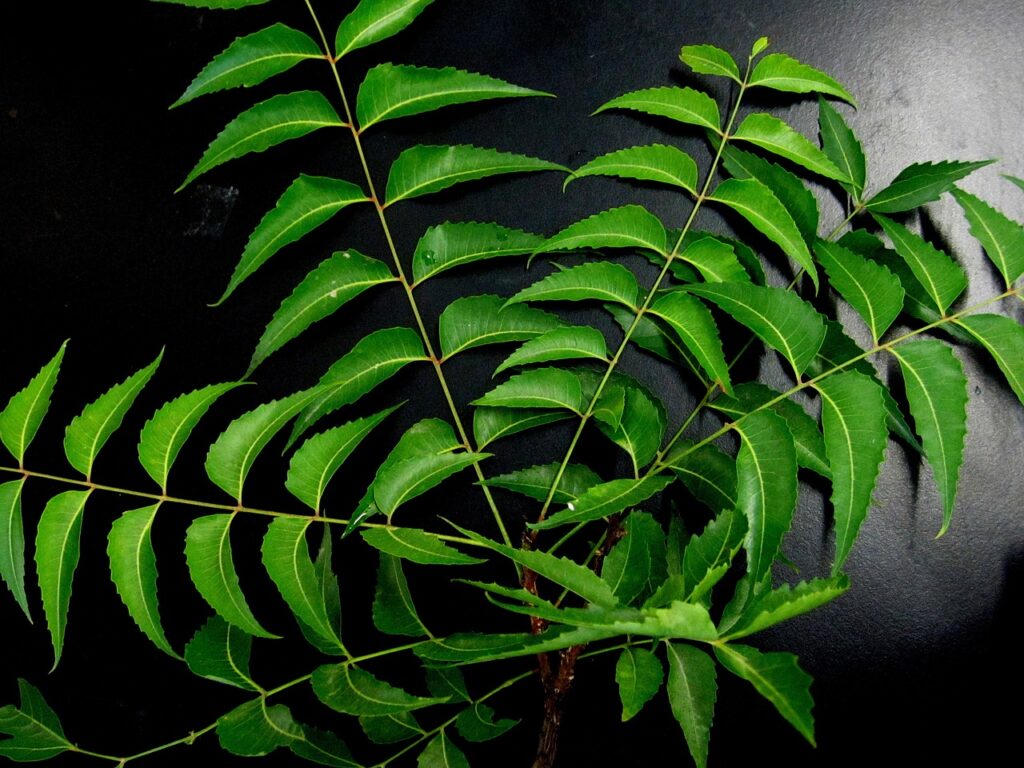1. Turmeric (Curcuma longa).

Turmeric, particularly its active compound curcumin, has several potential benefits for acne treatment
Here’s how turmeric can help:
1. Anti-Inflammatory Properties
- Turmeric has strong anti-inflammatory effects, which can help reduce the redness, swelling, and irritation associated with acne. By calming inflammation, turmeric can make acne lesions less noticeable and less painful.
2. Antioxidant Effects
- Curcumin in turmeric is a powerful antioxidant. It helps to neutralize free radicals, which are compounds that can contribute to skin damage and inflammation, potentially preventing acne from worsening.
3. Antibacterial Properties
- Turmeric has natural antibacterial properties that can help fight the bacteria that contribute to acne development, particularly Propionibacterium acnes. Reducing bacterial growth on the skin can reduce the likelihood of acne breakouts.
4. Reduces Excess Oil Production
- Excessive oil production is one of the main contributors to acne. Turmeric is believed to help regulate the production of sebum (skin oil), which can prevent clogged pores and the formation of acne.
5. Helps with Skin Healing
- Turmeric is known to promote faster healing of damaged skin. It can reduce the appearance of acne scars over time by promoting skin regeneration and providing a soothing effect on the skin.
6. Improves Skin Tone and Texture
- Due to its anti-inflammatory and antioxidant effects, turmeric can help improve overall skin tone, reducing the appearance of dark spots and hyperpigmentation left behind by acne.
2. Sarpagandha (Rauvolfia serpentina).

Sarpgandha is an herb traditionally used in Ayurvedic medicine for its various therapeutic benefits. Recent clinical trail have proven the benifit for skin health for those dealing with acne:
1. Stress Reduction
- One of Sarpgandha’s well-known uses is in promoting relaxation and reducing stress and anxiety. Stress can trigger hormonal imbalances, leading to increased sebum production and potentially contributing to acne flare-ups. By helping manage stress, Sarpgandha might reduce the likelihood of stress-related acne.
2. Anti-inflammatory Properties
- Sarpgandha has anti-inflammatory effects, which may help reduce the inflammation associated with acne. Inflammation is a core factor in acne development, so reducing inflammation could lead to fewer breakouts and less severe symptoms.
3. Balancing Hormones
- Sarpgandha has been noted to help regulate various bodily functions, including the endocrine system, which controls hormone production. Since hormonal imbalances are a major cause of acne, especially during puberty or menopause, balancing hormones with Sarpgandha might help in reducing acne symptoms related to hormonal fluctuations.
4. Detoxification
- Sarpgandha is also known to support liver function and aid in detoxification. The liver plays an essential role in detoxifying the body and removing toxins, and improving liver health might indirectly help with acne, as toxins can sometimes manifest on the skin.
3. Neem (Azadirachta indica).

Neem (Azadirachta indica) is a well-known plant in traditional medicine, particularly for its benefits in treating various skin conditions, including acne. Here are some ways neem can be beneficial for acne:
1. Antibacterial Properties
Neem has strong antibacterial properties that help in killing the acne-causing bacteria Propionibacterium acnes. By reducing the number of bacteria on the skin, neem helps prevent breakouts and inflammation associated with acne.
2. Anti-inflammatory Effects
Acne often leads to redness and swelling, which can be alleviated by neem’s anti-inflammatory properties. It helps reduce the inflammation around acne lesions, leading to a calmer appearance of the skin.
3. Antioxidant Benefits
Neem is rich in antioxidants, which help protect the skin from oxidative stress and free radical damage. This can help in reducing scarring and pigmentation that might occur due to acne.
4. Regulation of Sebum Production
Neem helps regulate the production of sebum (skin oils). Excessive sebum production can clog pores and lead to acne, but neem helps maintain a healthy balance, preventing the formation of pimples.
5. Promotes Healing
Neem helps promote faster healing of acne scars. Its wound-healing properties assist in the repair of damaged skin, reducing the visibility of acne scars over time.
6. Rich in Nutrients
Neem contains essential nutrients such as vitamin C, fatty acids, and other active compounds that nourish the skin and promote a clearer complexion.

One response
Helpful feed